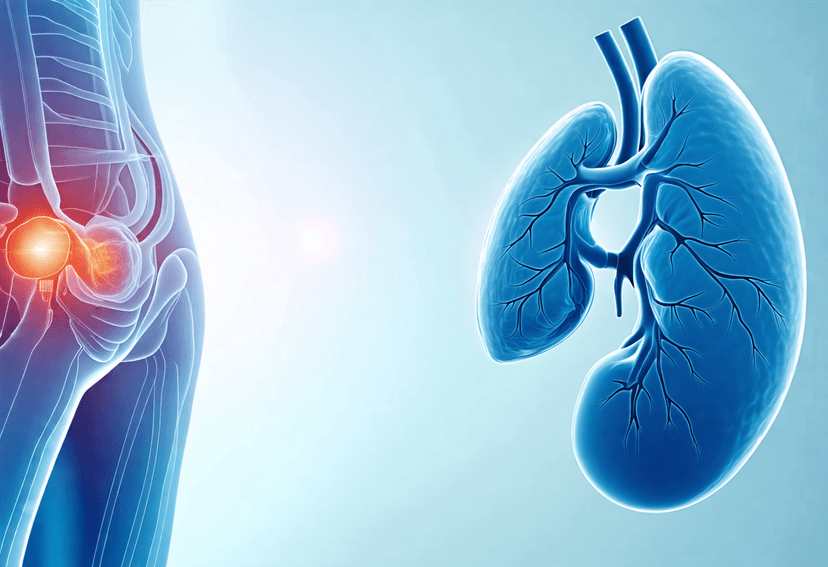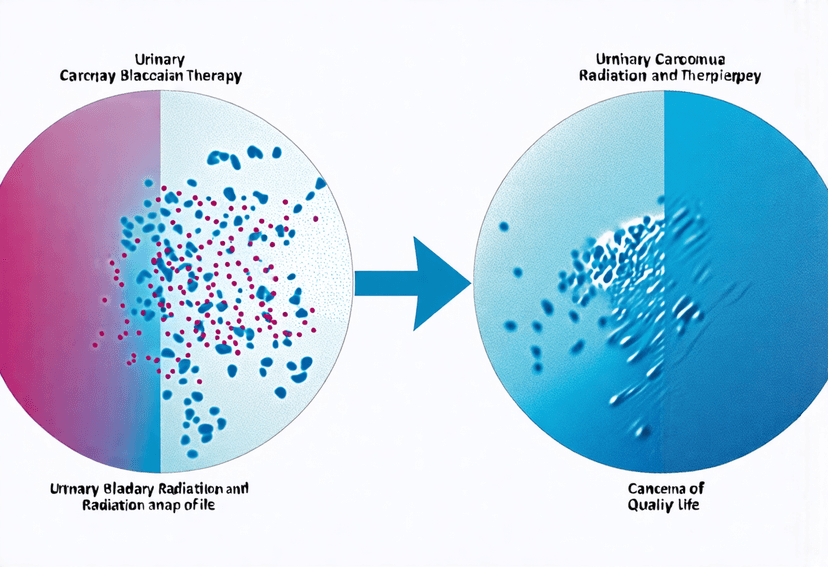
Radiation Therapy for Muscle Invasive Bladder Cancer
25 Oct, 2024
 Healthtrip
HealthtripRadiation therapy is a crucial component in the treatment of muscle-invasive bladder cancer, offering a promising chance of cure and improved quality of life for patients. As a vital part of a comprehensive treatment plan, radiation therapy plays a critical role in combating this aggressive disease. In this article, we will delve into the world of radiation therapy for muscle-invasive bladder cancer, exploring its benefits, types, and what to expect during treatment.
Understanding Muscle-Invasive Bladder Cancer
Muscle-invasive bladder cancer is a type of cancer that has penetrated the muscle layer of the bladder, making it a more aggressive and potentially life-threatening condition. This type of cancer requires immediate attention and treatment, as it can spread quickly to other parts of the body. The symptoms of muscle-invasive bladder cancer may include blood in the urine, frequent urination, and pelvic pain. If left untreated, muscle-invasive bladder cancer can lead to severe complications, including kidney damage, urinary incontinence, and even death.
Most popular procedures in India
Diagnosis and Staging
The diagnosis of muscle-invasive bladder cancer typically involves a combination of imaging tests, such as CT scans, MRI scans, and cystoscopy. A biopsy is also performed to confirm the presence of cancer cells. Once diagnosed, the cancer is staged based on the extent of its spread. The most commonly used staging system is the TNM system, which takes into account the size of the tumor, lymph node involvement, and metastasis.
Radiation Therapy for Muscle-Invasive Bladder Cancer
Radiation therapy is a non-invasive treatment that uses high-energy radiation to kill cancer cells. In the treatment of muscle-invasive bladder cancer, radiation therapy can be used as a primary treatment, or in combination with surgery or chemotherapy. The goal of radiation therapy is to destroy cancer cells, reduce symptoms, and improve quality of life. There are several types of radiation therapy used to treat muscle-invasive bladder cancer, including external beam radiation therapy, internal radiation therapy, and stereotactic body radiation therapy.
Wellness Treatments
Give yourself the time to relax
Lowest Prices Guaranteed!

Lowest Prices Guaranteed!
Benefits of Radiation Therapy
Radiation therapy offers several benefits for patients with muscle-invasive bladder cancer. It can help to reduce symptoms, such as bleeding and pain, and improve urinary function. Radiation therapy can also increase the chances of cure, especially when combined with surgery or chemotherapy. Additionally, radiation therapy can be used to treat cancer that has spread to other parts of the body, improving overall survival rates.
What to Expect During Radiation Therapy
Before starting radiation therapy, patients will undergo a simulation session to plan the treatment. During this session, the radiation oncologist will use imaging tests to identify the exact location of the tumor and surrounding organs. The patient will then be fitted with a custom-made immobilization device to ensure they remain in the same position during each treatment session. Radiation therapy is typically administered on an outpatient basis, with treatment sessions lasting around 15-30 minutes, 5 days a week, for several weeks.
Side Effects of Radiation Therapy
While radiation therapy is generally well-tolerated, it can cause side effects, such as fatigue, urinary symptoms, and bowel changes. These side effects are usually mild and temporary, but in some cases, they can be more severe. It is essential for patients to discuss any concerns or side effects with their radiation oncologist, as they can provide guidance on managing these symptoms.
HealthTrip: A Comprehensive Approach to Cancer Care
At HealthTrip, we understand the complexities of cancer care and the importance of a comprehensive treatment plan. Our team of experts, including radiation oncologists, urologists, and oncologists, work together to provide personalized care and treatment options for patients with muscle-invasive bladder cancer. We believe in empowering patients with knowledge, support, and access to the latest treatment options, ensuring they receive the best possible care. By combining cutting-edge technology, innovative treatments, and compassionate care, HealthTrip is dedicated to improving outcomes and enhancing the quality of life for cancer patients.
By exploring the role of radiation therapy in the treatment of muscle-invasive bladder cancer, we can better understand the complexities of this disease and the importance of a comprehensive treatment plan. At HealthTrip, we are committed to providing patients with the knowledge, support, and care they need to navigate their cancer journey. With a focus on innovation, compassion, and patient-centered care, we are dedicated to improving outcomes and enhancing the quality of life for cancer patients.
Related Blogs

Bladder Cancer: Risk Factors and Symptoms
Stay informed about bladder cancer, its risk factors, and symptoms

Urinary Bladder Carcinoma Radiation Therapy and Palliative Care
Radiation therapy can provide palliative care for urinary bladder carcinoma

Radiation Therapy for Bladder Cancer in Elderly Patients
Radiation therapy is a suitable treatment option for elderly patients

Bladder Cancer Treatment with Radiation Therapy and Immunotherapy
Learn about the combination of radiation therapy and immunotherapy for

Urinary Bladder Carcinoma Radiation Therapy and Quality of Life
Radiation therapy can improve quality of life for urinary bladder

Bladder Cancer Radiation Therapy and Chemotherapy Side Effects
Learn about the side effects of combining radiation therapy and










